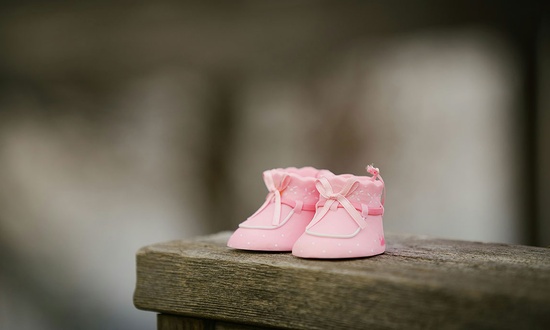Question from a reader:
Will we be reunited with children who have died? We’ll be reunited in Heaven with all believing loved ones. But what about infants, small children, and those who are mentally handicapped or have died too young to believe in Christ?
Answer from Randy Alcorn:
In Adam, all mankind sinned (Romans 5:12). We’re conceived sinners (Psalm 51:5). Thus, children, as well as the mentally handicapped, have a sin nature and are separated from God. If God were willing to tolerate a certain number of sins but no more, then children who die young may not have reached their limit, thereby qualifying for Heaven. But Scripture teaches that the presence of any sin is enough to separate us from God (James 2:10). To say “Well, of course children are saved” won’t suffice—given their sin natures, there is no “of course” about it.
A doctrine of infant salvation appears to require that children are conceived saved, then remain saved until they reach a certain age, at which point they become lost. But Scripture teaches we’re conceived lost and remain lost until we become saved.
Scripture makes no reference to an “age of accountability,” and it certainly doesn’t teach the moral innocence of children. Charles Spurgeon said, “Some ground the idea of the eternal blessedness of the infant upon its innocence. We do no such thing. We believe that the infant fell in the first Adam ‘for in Adam all died.’...If infants be saved it is not because of any natural innocence. They enter heaven by the very same way that we do: they are received in the name of Christ.”
Any person’s salvation comes only through Christ’s work (1 Timothy 2:5). Unless a person is born again, he or she can’t enter God’s Kingdom (John 3:3). How could a child be born again without consciously choosing Christ?
Scripture opens the door to the answer to this question through its teaching that God has a special love for children. Christ taught that we need to become like children to enter God’s Kingdom, and he made a point of embracing children when his disciples wanted to exclude them (Matthew 19:13—14). He said “Let the little children come to me, and do not hinder them” (Luke 18:16). Christ used children as examples of faith (Matthew 18:2—4). In Ezekiel 16:21 God expresses his anger at the killing of children and refers to them as “my children.”
Jesus says that the angels assigned to children “continually see the face of My Father who is in heaven” (Matthew 18:10, nasb). Clearly, this is special treatment, suggesting there may be other acts of special treatment, including salvation apart from the normal process of confession and repentance. Because of such passages, I believe that God in his mercy and his special love for children covers them with Christ’s blood.
In Psalm 8:2, David says, “From the lips of children and infants you have ordained praise” (quoted by Jesus in Matthew 21:16). The inclusion of infants is significant because they would not be conscious of giving praise; it would have to be something instinctive. So, although children are sinners who need to be saved, God may have a just way to cover them with Christ’s blood so they go to Heaven when they die.
An interesting passage tells us that John the Baptist was filled with the Holy Spirit in his mother’s womb (Luke 1:15, NASB). This suggests that God conferred a righteous standing—or at least a special, spiritual, sanctifying work—on John even though he was too young to confess his sinfulness or consciously yield to God. If God did that with John, couldn’t he do it with other children? Similarly, David says God had been his God since his mother bore him (Psalm 22:10). God told Jeremiah he’d known him since before he was formed in his mother’s womb (Jeremiah 1:5).
The most common biblical argument used to support infant salvation is David’s statement about his infant son who died: “I will go to him, but he will not return to me” (2 Samuel 12:23). It’s possible that David was saying either that he would die and go to the grave (joining his son in death but not necessarily in Heaven) or that he would die and, in fact, join his son in Heaven. I personally think David, in his agony, was consoling himself with the belief he would one day join his son in Heaven.
Although I believe God makes special provision for children to welcome them into Heaven, I’m concerned that this doctrine—which is at most implied and certainly not directly taught in Scripture—has been twisted in a way to make many people feel indifferent about two heartrending situations: abortion and children dying of sickness and malnutrition. I’ve written more elsewhere on the dangerous aspects of this subject.
 Perhaps in Heaven many people will meet their children who were aborted or their children who died in miscarriages (even some miscarriages their mothers weren’t aware of). Many parents will be reunited with children who died at an early age. Perhaps these children will grab our hands and show us around the present Heaven. Then one day, after the final resurrection, we’ll enjoy each other’s company on the New Earth—and experience its wonders together.
Perhaps in Heaven many people will meet their children who were aborted or their children who died in miscarriages (even some miscarriages their mothers weren’t aware of). Many parents will be reunited with children who died at an early age. Perhaps these children will grab our hands and show us around the present Heaven. Then one day, after the final resurrection, we’ll enjoy each other’s company on the New Earth—and experience its wonders together.
If children do go to Heaven when they die, why doesn’t God tell us that directly? It may be that he anticipates the twisted logic and rationalization it might foster in us. It might take from us the sense of urgency to see our children come to faith in Christ. It might cause us to be less concerned about the sacred God—given task of extending physical and financial help to the underprivileged and getting the gospel to children around the world. We must do what God has called us to do, which includes protecting, rescuing, feeding, evangelizing, and discipling children.
In Heaven, both we and they will be grateful for all we did on their behalf.
For more information on the subject of Heaven, see Randy Alcorn’s book Heaven.
Photo by bady abbas on Unsplash



